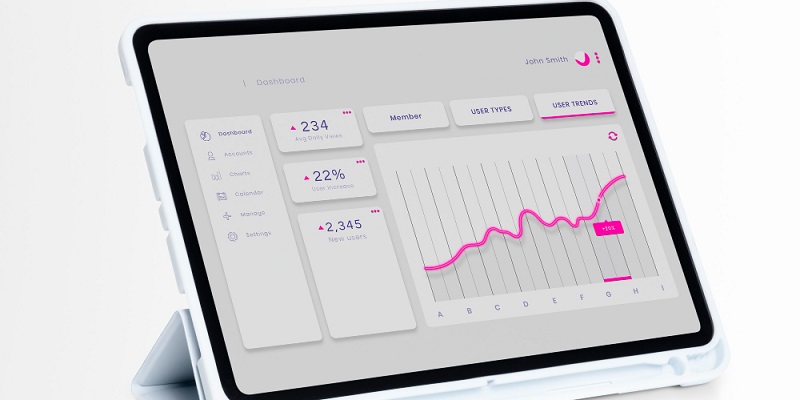In today’s fast-paced business environment, organizations are constantly looking for ways to streamline their operations and improve their communication with vendors and clients. One essential solution that can significantly enhance these processes is EDI automation in Microsoft Dynamics 365 Business Central. By automating the exchange of EDI data, businesses can simplify and streamline essential communications, thereby improving overall efficiency in their operations.
Efficiency and Centralized Reporting with EDI Automation in Business Central
Bringing EDI data into Microsoft Dynamics 365 Business Central offers numerous benefits for organizations looking to boost efficiency and streamline their reporting and management processes. By integrating EDI data, businesses can eliminate the need for manual document exchanges with vendors and clients, reducing errors and eliminating the delays typically associated with paper documents. This automation not only saves time but also provides a centralized source of truth for all reporting and management needs, allowing businesses to access accurate and up-to-date information in real-time.
Eliminating manual document exchanges and reducing errors with EDI automation
One of the key advantages of EDI automation in Business Central is the ability to eliminate manual document exchanges and reduce errors. Traditionally, businesses rely on paper documents for various communication processes, which are prone to errors and delays. With EDI automation, these manual exchanges are replaced by seamless electronic transfers, eliminating the risk of lost or misinterpreted information. By automating these processes, businesses can significantly reduce errors, leading to improved accuracy and streamlined operations.
Consistent application of business rules and adherence to industry standards
Automating EDI processes in Microsoft Dynamics 365 Business Central ensures that business rules are consistently applied, improving accuracy and helping organizations stay in step with industry standards. With manual document exchanges, there is a higher chance of overlooking or misinterpreting the necessary business rules, leading to errors and non-compliance. By leveraging EDI automation, businesses can ensure that these rules are consistently applied, minimizing the risk of non-compliance and enhancing efficiency in their operations.
Real-Time Monitoring of EDI Transactions with the Right Technology Infrastructure
With the right technology infrastructure in place, organizations can monitor their EDI transactions in real-time, empowering them to make informed decisions promptly. Real-time monitoring offers businesses a high level of transparency and visibility into their EDI processes. By having access to real-time data, organizations can identify and resolve any potential issues or bottlenecks quickly, ensuring smooth operations and enhanced efficiency.
Challenges in implementing EDI automation in Dynamics 365 Business Central
While EDI automation can bring significant benefits to businesses, implementing it in Microsoft Dynamics 365 Business Central can be quite challenging. One of the main challenges is the unique and complex requirements of individual vendors. Each vendor may have their preferred EDI format, communication protocols, and specific integration needs. Aligning all these requirements and ensuring smooth integration can be a complex task. Additionally, supply chain management is a multifaceted process, involving various stakeholders and processes, which adds another layer of complexity to the integration process.
Time and implementation considerations for EDI automation in Business Central
Businesses that have already implemented a powerful cloud ERP like Microsoft Dynamics 365 Business Central are familiar with the time it takes to implement and get up to full speed. Integrating EDI automation may require changes to the existing business processes configured in Business Central. It is essential to carefully plan the implementation process, considering the potential impact on existing processes, training requirements, and potential disruptions during the transition.
Challenges in complying with EDI standards and transmission protocols
Complying with various EDI standards and transmission protocols can be challenging, especially as these standards and protocols constantly evolve. Each industry and geographic region may have its own set of standards that need to be adhered to for effective EDI communication. Staying up-to-date with these standards and ensuring compliance can be a daunting task for businesses. However, with the right EDI automation solution, organizations can navigate these challenges and ensure seamless compliance with industry standards.
The Competitive Advantage of Investing in EDI Automation
To remain competitive in the digital landscape, businesses must invest in technologies like EDI automation to keep pace with increasing demand and improve their customer experience. With the rise of e-commerce and digitization, customers expect fast and accurate transactions. EDI automation enables organizations to meet these expectations by streamlining their communication processes with vendors and clients, reducing errors, and delivering an enhanced customer experience. By investing in EDI automation, businesses can gain a competitive advantage, attract more customers, and ultimately drive growth.
EDI automation in Microsoft Dynamics 365 Business Central offers organizations a powerful solution to enhance operations, streamline communication, and improve overall efficiency. By leveraging the capabilities of EDI automation, businesses can eliminate manual document exchanges, reduce errors, and ensure consistency in applying business rules. Real-time monitoring of EDI transactions empowers organizations to make informed decisions promptly. Although implementing EDI automation can be challenging, the benefits of improved efficiency, compliance, and customer experience make it a worthwhile investment. To thrive in the digital era, businesses must embrace technologies like EDI automation to stay ahead of the competition and meet the ever-increasing demands of customers.

